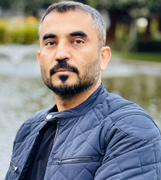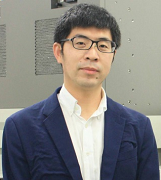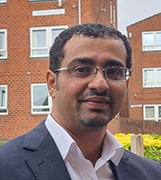



Dr. Riccardo Bassoli
Technische Universität Dresden, Germany

Dr. Muhammad Asif Khan
Qatar Mobility Innovations Center, Qatar

Assoc. Prof. Tao Li
Tohoku University, Japan
Tao Li received his Ph.D. in Navigation, Guidance, and Control from Harbin Engineering University, China, in 2016. From 2013 to 2015, he was a Visiting Ph.D. Student at the University of Calgary, Canada. He then worked as an Academic Researcher at the Institute of Innovative Science and Technology, Tokai University, Japan, from 2016 to 2018. From 2018 to 2020, he was part of the Japan Science and Technology Agency’s Open Innovation Platform project at Tohoku University. He is currently an Associate Professor at the Center for Innovative Integrated Electronic Systems, Tohoku University, and a member of the Cross-Ministerial Strategic Innovation Promotion Program. His research focuses on non-volatile brainware processors, digital signal processing, and inertial navigation systems.
Title: Bridging Artificial Intelligence and Non-volatile Devices for Energy-efficient Edge Computing
Abstract: Recent developments in non-volatile devices and deep neural networks (DNNs) provide substantial opportunities for improving brain-inspired processors in edge computing. However, each of these fields has progressed mostly separately, leaving a gap in leveraging their combined potential capabilities. The goal of this talk is to fill the gap by combining DNN fault tolerance with non-volatile device switching properties. The new approach not only decreases power consumption but also maintains DNN accuracy, opening opportunities for more efficient and high-performance edge computing.

Assoc. Prof. Dr. Wael Yafooz
Taibah University, Saudi Arabia

Dr. Paikun Zhu
National Institute of Information and Communications Technology (NICT), Japan